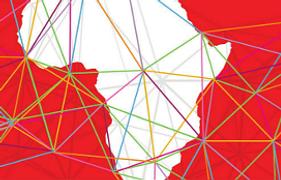
The process of financial integration consists in strengthening the links between national financial systems to create a broader financial space offering a wider choice of funding and investment opportunities. Concerning both the banking system and financial markets, financial integration allows economies of scale and enhances competition. It provides better access to financial services and, generally, reduces their costs as well as allowing the allocation of capital towards the most profitable projects. Financial integration is thus an instrument of financial development which itself favours economic growth.
In this perspective, the implementation of financial integration policies raises a number of issues: a) how to make institutional integration, i.e. the adoption of common rules and instruments, translate into a de facto integration via an intensification of financial flows between countries? b) how to coordinate financial integration with other dimensions of integration –monetary, commercial and economic – in order to increase its benefits? c) how to cope with new risks associated with the increase in regional financial flows, and particularly, the risk of financial crisis contagion? and d) how to articulate Africa’s, regional financial integration with global financial integration?
The aim of the conference was to generate recommendations on how to promote financial integration in Africa, by combining recent academic findings on this topic with the experience of practitioners from both the public and the private sector.
Conference's partner : the Banque de France
For further information on events organised by the Banque de France : https://www.banque-france.fr/en/economics-statistics/research/seminars-and-symposiums.html
Programme PDF Introduction
9:00 – 9:30 am
Marc-Olivier Strauss-Kahn, Director General for Economics and International, Banque de France
Patrick Guillaumont, President of Ferdi
Inaugural conference: The challenge of financial integration for developing economies
9:30 – 10h30 am
Ronald McKinnon, Emeritus Professor, University of Stanford
Hot Money Flows, Cycles in Primary Commodity Prices, and Financial Control In Developing Countries
Pierre-Richard Agénor, Hallsworth Professor, University of Manchester and Senior Fellow, Ferdi
L’intégration financière : Théorie, évidences, et leçons des expériences internationales
Session 1: Why promote financial integration in Africa?
10:45 – 12:15 am
The aim of this session is to identify the main benefits expected from financial integration, notably by comparing the various observable African financial integration processes that have to differing extents achieved a degree of commercial, economic and monetary integration.
Introduction :
Christopher Adam, Professor, University of Oxford
Promoting Financial Integration in Africa - A perspective from the East African Community
Discussion :
Anne-Marie Gulde, Deputy Director of the African Department, IMF
Financial Integration in Africa: Benefits and Safeguards
Sylviane Guillaumont, Emeritus Professor, Cerdi-University of Auvergne
Session 2: What are the best ways of promoting financial integration?
1:30 – 3:00 pm
The aim of this session is a) to identify the main obstacles to financial integration in Africa such as the lack of reliable financial information and trust between agents, exchange rate controls, and the persistence of financial protectionism, and b) to discuss the most efficient instruments for overcoming these obstacles.
Introduction :
Amadou Sy, Senior fellow, Brookings institution
What Are the Best Ways of Promoting Financial Integration in Sub-Saharan Africa?
Irina Astrakhan, Lead Private and Financial Sector Specialist in East and Southern Africa, World Bank
Promoting Financial Integration in Africa- Lessons from supporting deeper and more efficient financial sectors in East and Southern Africa
Discussion :
Antoine Traoré, Director for banking activities and Enconomic Financing, BCEAO
Bruno Cabrillac, Director for Economics and International and European Relations, Banque de France
Amadou Kane, President of the Board of the National Bank for Economic Development and former Minister of the Economy and Finance of Senegal
Henri-Claude Oyima, CEO of the BGFI Bank Group
Session 3: What instruments to maintain the benefits of financial integration?
3:15 – 4:45 pm
The aim of this session is to identify the risks to financial instability stemming from financial integration, such as banking crises and sovereign debt crisis in particular. It will discuss instruments that are better suited to the African context, both in preventing and dealing with such crises ex-post.
Introduction :
Christian de Boissieu, Professor, University of Paris 1 and at the Collège d’Europe, Member of the AMF Board
Discussion :
Paul Derreumaux, Honorary President of Bank of Africa Group and Administrator of BOA Group, Holding of Bank of Africa Group
Emmanuel Carrère, Senior advisor, International Directorate, ACPR
Intégration financière et supervision bancaire : une perspective Européenne
Abbas Mahamat Tolli, Secretary General, Banking Commission of Central Africa (COBAC)
Hiba Zahoui, Deputy Director for Banking Supervision, Bank Al-Maghrib
Supervision des banques marocaines panafricaines
Round table: regional financial integration and financial globalisation
4:45 – 5:45 pm
This panel should focus on how to reconcile the regional financial integration of African economies with their integration into the international financial system. For example, is it possible to foster international funding of Africa while protecting the continent from the risks associated with global financial markets.
Opinion of panellists on 3 questions:
Abdoulaye Bio Tchané, Chairman of the Board of the African Guarantee Fund, former Director for Africa at the IMF
Christian Durand, Deputy Director General for Economics and International, Banque de France
Sylviane Guillaumont, Emeritus Professor, Cerdi-Université d’Auvergne
Anne-Marie Gulde, Deputy Director of the African Department, IMF
Anthony Requin, Assistant Secretary Multilateral affairs, trade and development policies department, French Tresory
Lionel Zinsou, President of PAI Partners
Closing remarks
5:45 – 6:00 pm
Patrick Guillaumont, President of Ferdi
Christian Durand, Deputy Director General for Economics and International, Banque de France